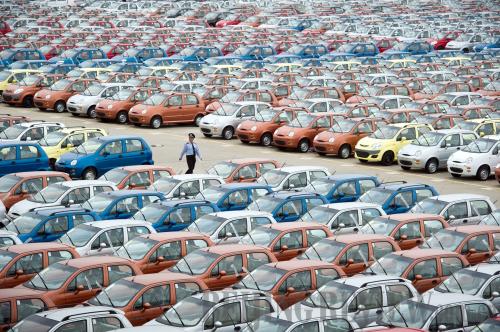|
 |
|
PRODUCTION BASE: Cars manufactured by Chery fresh off the production line (XINHUA) |
This view was echoed by Jin. "Chery is more competitive and makes higher profits in foreign countries than in the domestic market," he said, explaining that Chinese brands were well received overseas thanks to its growing economy. "Chery's image is also elevated. Our vehicles can be priced at the same level as those from South Korean automakers, which generally sell at higher prices in Chinese domestic markets," Jin added.
Another advantage is that Chinese automakers don't necessarily do many market surveys when going abroad because customers' demands and income levels in the emerging markets are similar to those in China, said Zhang. Moreover, the competition between Chinese auto producers and multinationals is less fierce in overseas markets. China's automakers initially targeted the middle and low-end markets, while their foreign competitors focused on the urban high-end market. "Before 2005, they operated separately and had little competition, which is now reflected in the overseas emerging markets, making the huge potential there an opportunity for Chinese automakers," said Zhang.
Localization
Like other Chinese enterprises going abroad, Chery encountered problems when integrating into foreign markets. "The biggest problem was cultural differences," said Jin. He said the Chinese habit of working late and long hours is not followed in Latin America and Africa.
"We respect locals' mindsets and follow their working style. Facing such conditions, Chinese technicians will take the lead and do some work supposed to be done by local employers," Jin added. Chery gained popularity and support overseas among local people and authorities as it brought skills, jobs, worked with local suppliers and was socially responsible, he said.
In Jin's eyes, when enterprises go abroad, they bridge the people-to-people exchanges between the two countries. "By doing business in Latin America or Africa, we learned the local culture and customs. And the locals also witnessed Chinese virtues of hard work and diligence, as well as our company's philosophy of creativity and dedication," said Jin.
yushujun@bjreview.com |
